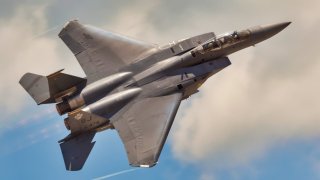NATO Must Stop Russia Now
Much time has been lost. Many opportunities for preemption, deterrence, and collective action have been squandered. It is past time for NATO to stop Russia.
Much time has been lost. Many opportunities for preemption, deterrence and collective action have been squandered. It is past time for NATO to stop Russia.
Why is swift, pathbreaking action imperative? For moral reasons.Will NATO really allow Russia’s genocidal campaign to continue on in the heart of Europe? Does “never again” mean anything? For existential reasons. Russia threatens not just Ukraine, but democracies across Europe and beyond. Are NATO countries willing to risk their security and way of life for a temporary reprieve? For peace and stability. Russia brings war, mayhem and trauma everywhere it goes. Would NATO gamble on an elusive compromise with Russia when Putin always uses purported “peace processes” to buy time and cover for more war and aggression? To save what is left of the post-World War II world order. The emboldened Russia-China-Iran axis seeks a new world order dominated by authoritarians. Will NATO miss the chance to send the axis an unambiguous signal and setback by acting decisively against Russia?
Eastern flank countries understand the urgency of stopping Russia and exhort all of NATO to act accordingly. Latvian President Edgar Rinevics warned in an interview with Sky News: “[I]f Russia is not stopped (from) pushing the envelope, testing the limits, at one point it may consider that NATO is not serious about its own defense and then we are in trouble.” Estonian Prime Minster Kaja Kallas and Polish President Andrzej Duda implore NATO countries to increase defense spending to 3% of their GDP and to help Ukraine “right now.” Kallas explained to the BBC, “[B]ecause, what are the lessons from the 1930s and 1940s?” Lithuanian Foreign Minister Gabrielius Landsbergis laments NATO procrastination in “ramping up readiness” and recently asserted on X that “including Ukraine under the umbrella of NATO collective defense” is “the only way to deter Russian aggression.”
Speakers at a May 21st Atlantic Council event entitled “The Washington NATO Summit: Ukraine and the transatlantic security in the age of marching authoritarians” generally agreed that Ukraine should be admitted into NATO, and that failing to prioritize this at the upcoming summit in July would not be a “good look.” Will NATO finally/seriously address the dire and mounting threats before it? Instead of emphasizing “celebration” of NATO’s 75th anniversary, former Ambassador John Herbst said, NATO should adopt a “crisis mentality.” President of the Center for European Policy Analysis Alina Polyakova added that “an alliance that was awake would be on a war footing.” Prime Minister Fogh Rasmusen of Denmark rightly observed, “While we hesitated, Russia escalated. We must wake up.” Head of the Office of the President of Ukraine Andriy Yermak warned, “Russia is not going to stop. We have to stop it together.”
In spite of such calls for strong and resolute policy, if the recent past is prologue, NATO is unlikely to act with the toughness and resolve required to “stop Russia.” Thus, it is requisite to emphasize, in advance of the NATO Summit, the terribly high stakes. Let us assess the magnitude of the Russia threat to everything for which the Free World supposedly stands.
Russia's Wars of Aggression - Not Just Ukraine
Russia’s imperial wars and war crimes obviously extend way beyond Ukraine.
From Czechnya to Georgia to Syria, Russia has demonstrated bellicosity, cruel targeting, torture, deportations and disappearances of civilians including children, and ferocious lust for territory and domination. Russia today has camps, and Russia today engages in ethnic cleansing. Circassians and Crimean Tatars are effectively colonized and kept in check with brutality and oppression. Putin has successfully created a puppet state in Belarus, and is pursuing the same in Serbia. In Armenia and Azerbaijan and elsewhere, Putin has fomented the “frozen conflicts” which suit him so well. Moldova endures a constant threat from the pro-Russian “breakaway province” of Transnistria. And, in spite of the indomitable pro-democracy spirit of the Georgian people, Russia is working to usurp Georgia with the sympathetic government’s “foreign agents law.”
No part of Europe is free from Russia’s hybrid warfare. From the Baltics to the Balkans, Russia seeks to destabilize democracies with disinformation (now enhanced with AI), cyber attacks, electronic warfare and aggressive intelligence operations. Russia is reckless and brazen, with no concern for civilized norms. Estonia recently issued a protest regarding Russia’s jamming of GPS signals, which dangerously affected regional aviation. GRU (Russian military intelligence) methods include sabotage, cyber operations, assassinations and arson. Per the Financial Times, European intelligence agencies have warned that Russia “is plotting violent acts of sabotage across the continent as it commits to a course of permanent conflict with the west.” The EU and NATO response to all this has remained tempered, even as Russia’s malign transgressions have grown.
Russia uses propaganda and “active measures” to divide Americans, and citizens within all Western democracies, against each other, to alienate Europe from the United States, and to split NATO allies. Russia wants to create a fractured, cynical West that no longer knows what it stands for, or why, and lacks the courage of its convictions. What better way to counter this stratagem than for NATO allies to unite in moral-democratic resolve, persistently expose Putin’s lies, reinvent Voice of America-type programs, and engage in vigorous information operations of their own?

The complacency, prevarication and incrementalism with which post-Cold War NATO has dealt with the Russian threat has damaged the credibility and authority of the alliance. No wonder Poland and Estonia are on a war footing. NATO has only 5% of the air defenses needed to protect Eastern flank countries from a full-scale attack according to NATO’s own reports. Moreover, the fact that Russia has not faced staunch, unerring Western resistance to the horrors it inflicts on Ukraine and the nightmares it inflicts on Europe means that Russia is relatively free to simultaneously wreak havoc across the globe, which it assuredly does.
Syria’s murderous dictator Bashar al Assad and allies Russia, Iran, and Hezbollah succeeded in keeping the detested Syrian regime in power through merciless war and atrocities, and NATO countries and others did little to stop them. Appallingly, Arab and Western leaders, including the Biden administration, are moving toward “normalizing” relations with the Assad regime in spite of its ongoing genocidal war on the Syrian people, and Russia, Iran and Hezbollah’s participation in that war, which expands their footprint and power. Thankfully, recent Congressional measures include new sanctions designed to undo some of the damage done by Syria and Iran accommodation.
Putin cultivates Islamist extremists as well as authoritarians, all the while exploiting chaos and despair. Hezbollah, Hamas, the Taliban, the Houthis … Russia has relations with them all insofar as that tears at the fabric and security of democracies, and inhibits pro-democracy elements in developing countries. In September 2023, Putin hosted the Taliban for talks. In May, Russia moved toward removing the Taliban from its list of terrorist organizations. Tellingly, Putin hosted both a Hamas delegation and Iran’s foreign minister shortly after Hamas’s October 7th terror attack on Israel. As more evidence emerges, more analysts are agreeing with Mark Toth and Jon Sweet’s assessment that “Putin’s fingerprints are all over the Hamas attack.” Before as well as after the attack, Russia, China and Iran stepped up pro-Hamas and antisemitic propaganda.
Russia, China and Iran are capitalizing on every vacuum of America-democratic influence. Russia’s Wagner Group, recently rebranded the Africa Corps, has ascended in Africa as US and French influence have declined. Countries in northern Africa and the Sahel have been plagued with a “counterwave” to previous trends toward democratization, with resurgent terrorism and coups, and Russian exploitation of both. Particularly notable was Niger’s revoking of its military cooperation agreement with the United States, and ordering US troops to leave. Sudan, where Russia also makes its mark, has descended into war waged by a genocidal Islamist militia.
NATO's Defense Posture
NATO’s defense calculations must include the power of Russia, China and Iran combined. These partners/allies benefit from weapons and technology transfers, joint military exercises, energy trade, sanctions breaches and running cover for each other in the UN. Russia uses dual-use equipment from China (which China is now “surging” to Russia) and drones from Iran in its war on Ukraine. Now, Iran is additionally providing Russia with ballistic missiles. To subvert what remains of the US-oriented “world order,” the three countries disseminate fierce anti-democratic propaganda; cultivate ties with North Korea and bad actors across the globe; and work toward devastating cyber and infrastructure attacks on the United States. Add to this China’s dramatic military build-up, plan to subjugate Taiwan and cooperation with Russia on space, cyber and nuclear weapons and the picture gets more alarming.
NATO must contain and counter these hostile, brutal regimes and, although China is America’s most formidable adversary, stopping Russia’s savage, ruinous war on Ukraine is fundamental to that effort. By unequivocally and swiftly helping Ukraine defeat Russia, NATO can deliver a decisive setback and credible warning to them all. The too little too late approach must be replaced with scale and speed. While Biden and Scholz are finally, partially backing away from restrictions on Ukraine firing weapons across the border with Russia, Russia gains momentum when the West dithers. Such is all too evident in Russia’s horrific assault on Kharkiv.

Having prevaricated while the enemy advanced, NATO must also prepare for wider war, while doing everything possible to deter it. At about the time Russia outrageously “decided” to change its sea borders with Lithuania and Finland, Putin was warning European countries that Russia has “weapons that can hit targets on their territory.” As if to brag about the inhumanity with which he targets civilian populations, he said they should “remember that, as a rule, they are states with a small territory but dense population.” All of this is frightening and maddening, and exacerbates the West’s fear of “escalation,” but NATO must stand strong. It is weakness and procrastination that allow Russia’s hostilities and atrocities to escalate. There is no good alternative to “peace through strength” and no excuse for inadequately investing in the defense-industrial base and military modernization.
Failing to act boldly and with urgency is as unprincipled as it is unwise. There must be no more impunity for Russia’s wars of aggression and crimes against humanity. Ukraine must be welcomed into NATO as the tremendous ally that it would be, and swiftly given all the weaponry it requires to defeat Russia, to use in the manner it chooses. In addition to more heavily sanctioning Russian atrocities and hostilities, and more resourcefully countering Russia’s sanctions evasion, Western governments should explore ways, including via Russia’s frozen assets, to finance the rebuilding of Ukraine. As an admiral at a conference I attended remarked, “Putin believes time is on his side. … If Europe isn’t going to step up now, with war in Europe, when?”
About the Author: Dr. Anne R. Pierce
Anne R. Pierce is an author of books and articles on American presidents, American foreign policy, and American society. She has a Ph.D. from the University of Chicago, is an appointed member of Princeton University’s James Madison Society, and was a Political Science Series Editor for Transaction Publishers. Follow her @AnneRPierce.
All images are from Creative Commons.


